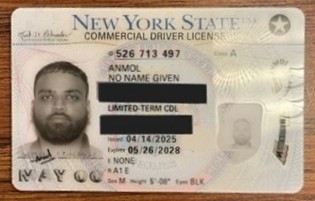A Minimum Wage Always Harms the Most Vulnerable
By Shane Smith
It’s a dismal fact of political reality that the most damaging economic policies always attract the most popular support. Laws that strangle and distort the free market, suffocate innovation, and destroy wealth, are greeted with wild applause by politicians and their supporters – both of whom consider themselves the most compassionate. But that misplaced compassion, more often than not, inflicts great harm on the people they most wish to help. I blame the widespread belief, approaching dogma, in the existence of a legislative Santa Claus who, with the flick of a pen, bestows prosperity upon the masses. But out of all the fairytale policies being pushed, there has been no policy so scrutinized and debunked as the minimum wage.A group of such bleeding hearts has formed in Oklahoma, agitating for a minimum wage increase, and seeks to gather signatures to allow Oklahomans to put it to a vote. Who do they believe will be helped should such an artificial wage increase be signed into law? Who do they think will be hurt?
The proposed minimum wage hike makes me think about a certain low-wage employee I see almost every day at a restaurant I frequent. He has the use of only one arm, and walks with a severe limp. He’s someone who’s been dealt a bad hand in life, but at least he has a job. Would a minimum wage hike help him in any way, or would it condemn him to unemployment? Would I begin seeing him wandering the city aimlessly like so many others do in Norman? Same with the Walmart greeter who uses an electric wheelchair. Will he lose his job? These are the questions that should be taken into account when discussing minimum wage hikes, because these are the people who will be affected. They’ll be the collateral damage of reckless virtue-signaling. If we truly cared about these people, we wouldn’t be fiddling with their lives like this.
Take a look at California, a perfect laboratory experiment that proves beyond doubt that minimum wage laws, along with any artificial tinkering with wage levels, results only in harm. The Sunshine State’s new $20 minimum wage law went into effect on April 1st, and the consequences are rapidly mounting. According to a new report by Kalinowski Equity Research, many restaurants have already hiked their prices by as much as 8 percent. Seattle-based Starbucks raised their menu prices by around 7% across the state. Others are beginning to follow suit as the inexorable laws of economics seek a return to equilibrium in the face of the price floors for labor.
In the lead-up to the imposition of the $20 minimum wage, many companies anticipated the effects by preemptively laying off thousands of employees. In a Wall Street Journal article published in March, Heather Haddon documents how restaurants, particularly pizza joints, have been hardest hit in the anticipation of the wage increase. Delivery drivers had been laid off by the thousands before the new minimum wage even went into effect. Many of these businesses are now cutting employees, raising prices, and looking to automate many of the duties previously performed by a person.
Seattle provides another laboratory experiment in the effects of moronic local governments destroying the lives of their own citizens through misguided wage hikes. A law passed in 2022 – PayUP – set a mandated wage floor for delivery drivers. The law went into effect this past January, and the results have been grim: a 30% decline in UberEats delivery orders in response to fee increases, which were of course a response to the artificial wage increase. Rather than helping delivery drivers, the drivers have seen orders decrease by over half, which means the law has cut their paycheck in half. To manage this new law, Seattle taxpayers now must foot the $1.2 million price tag on five new city employees, along with God knows what else. Despite this evidence, the Seattle government still stands by this law, proving once again that they don’t care about the effects of their disastrous interference into the market, only their intentions.
In New York City, several restaurant chains are testing out “virtual cashiers” who work the register remotely from the comfort of their home in some third world nation, effectively allowing the restaurant to sidestep the high labor costs associated with employing a physical American worker.
Seth Hill of the Cato Institute studied the effects of minimum wage hikes across American cities from 2006 to 2015, and published the results in his paper, “Minimum Wages and Homelessness.” He found that an artificial wage increase of up to $1 per hour led to a 15% increase in homelessness. Increases of more than a dollar per hour led to a 25% increase in homelessness, as the insidious effects of the minimum wage pushed those living at the margin underwater, effectively destroying their lives.
Look at the effects of a government-mandated wage increase on the au pair program in Massachusetts. The program, which allows foreign nationals to provide in-home childcare, were previously paid $195.75 per week, until a court-ordered wage increase brought that weekly pay to $528.63. This decimated the program, with Massachusetts seeing a sharp 68% drop in new au pairs arriving in the state after the wage increase.
The effects are universal: Minimum wage hikes are always followed by mass lay-offs, reduced worker benefits, higher prices, and the replacement of human workers with either workers of higher education, skill, and experience, or robots. And many of the jobs targeted for an artificial wage increase are ripe for automation. It’s important to remember that the true minimum wage is zero, and that a robot doesn’t need to be paid. It’s important to understand that many of the workers who the bleeding heart supporters of the minimum wage increase seek to help would instead be hobbled for life in the job market.
Artificial wage hikes cause unemployment, yes, but its effects are far more insidious than that. It wreaks its havoc most destructively at the margins, where the most vulnerable people scramble and scrape to make ends meet. A minimum wage increase means that employers begin looking for trade-offs. Higher wages attract more applicants, granting more market power to employers who get to choose the most attractive employees. For people whose only opportunity for employment has been these low-level jobs, they’re now up a creek thanks to the cult-like ignorance of left-wing politicians and the imbeciles who vote them into office.
The minimum wage is zombie economics in action. No matter how much evidence accumulates to show irrefutably that the policy causes immense harm to the very people it was supposed to benefit, we are forced to watch as cities, counties, and states actively work to destroy the livelihoods of workers at the bottom of the economic ladder in pursuit of a mirage. Mass layoffs, price hikes, the decimation of small businesses, and the creation of a permanent class of unemployable people, is guaranteed if a higher minimum wage is passed. It’s an inviolable law of economics, and supporters of artificial wage hikes should gain some knowledge about what they support, and a bit of humility. But we know they won’t, because the siren song of “free” and “more” is too irresistible.
I find it hard to believe that these people don’t understand the economic consequences of what they support, which makes their push for a minimum wage all the more insidious. Their support is borne out of ideology, they are ideologically wedded to the belief in a government-mandated wage hike, and no amount of evidence will convince them otherwise. That’s a grim prognosis, but experience has led me to believe that this is the case.
If we really want to protect and help Oklahomans who live and are employed at the margins, we should do everything within our power to oppose minimum wage hikes here. Maybe in Oklahoma we can learn from every single place where the minimum wage has been tried, and perhaps not follow in their footsteps. With all the state-level experiments in minimum wage, how about we become a state that consciously rejects artificial price floors. Let us be a state that rejects government interference in the economy, based on the mountains of data that proves that interference to be worse than futile.
Shane Smith is a pro-liberty writer based in Norman, Oklahoma. He blogs at: RepublicReborn.com











Latest Commentary
Thursday 30th of October 2025
Thursday 30th of October 2025
Thursday 30th of October 2025
Thursday 30th of October 2025
Thursday 30th of October 2025
Thursday 30th of October 2025
Thursday 30th of October 2025
Thursday 30th of October 2025
Thursday 30th of October 2025